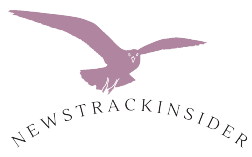In the bustling metropolis of Dubai, where healthcare is a top priority, significant strides have been made in promoting breast cancer awareness, early detection, and support for those navigating their cancer journey. Understanding the local screening guidelines and the support network available can empower women to take proactive steps towards their health and find solace and strength through community support.
Breast Cancer Screening Guidelines in Dubai
The Dubai Health Authority (DHA) emphasizes the importance of early detection in increasing breast cancer survival rates. Adhering to screening guidelines is crucial for early diagnosis and treatment, significantly improving outcomes.
Who Should Be Screened?
- General Population: Regular screenings are recommended for women aged 40 and above. However, those with a family history of breast cancer or other risk factors should consult their healthcare provider about starting earlier.
- High-risk Individuals: Women identified as high-risk due to genetic factors, a strong family history of breast cancer, or other predisposing conditions are advised to undergo more frequent screenings, often starting before the age of 40.
Recommended Screening Procedures
- Mammography: The primary screening tool for breast cancer. Women aged 40 to 69 in Dubai are advised to have a mammogram every two years. Those over 70 should consult their doctor to determine the need and frequency of screening based on their overall health and risk factors.
- Clinical Breast Exam (CBE): Performed by a healthcare professional, CBEs are recommended at least once every three years for women in their 20s and 30s, and annually for those aged 40 and above.
- Self-examination: While not a substitute for mammograms and CBEs, self-examinations help women become familiar with their breasts, enabling them to notice any changes and seek medical advice promptly.
Support Groups in Dubai
Facing breast cancer can be a daunting journey, filled with challenges that extend beyond the physical aspects of the disease. In Dubai, several support groups and organizations are dedicated to providing emotional, psychological, and informational support to individuals affected by breast cancer.
Al Jalila Foundation
A leading entity in healthcare philanthropy in the UAE, the Al Jalila Foundation supports breast cancer patients through funding for research, treatment, and promoting awareness about the disease. They also offer resources for patients seeking support and information.
Brest Friends
In partnership with the Al Jalila Foundation, Brest Friends is the first breast cancer support group in Dubai, established to offer guidance, education, and encouragement to breast cancer patients and survivors. The group organizes regular meetings, workshops, and events designed to foster a supportive community.
Dubai Health Authority Support Services
The DHA provides comprehensive support services for cancer patients, including counseling, rehabilitation, and nutritional advice. Their patient support programs are designed to help individuals and their families navigate the cancer journey with dignity and resilience.
Online Forums and Social Media Groups
Several online platforms and social media groups offer spaces for individuals affected by breast cancer to share their experiences, seek advice, and find support from others who understand their journey. These virtual communities can be particularly valuable for those seeking flexible support options.
Dubai’s commitment to public health is evident in its comprehensive breast cancer screening guidelines and the robust support network available for those affected by the disease. Early detection through adherence to screening recommendations, coupled with the support from various groups and organizations, empowers individuals to face their breast cancer journey with confidence and hope.
For women living in or moving to Dubai, understanding these guidelines and the support resources available is a crucial step in taking charge of their health. Remember, you are not alone in this journey. The support you need, whether medical, emotional, or informational, is readily available, helping you navigate the path from diagnosis to recovery.
